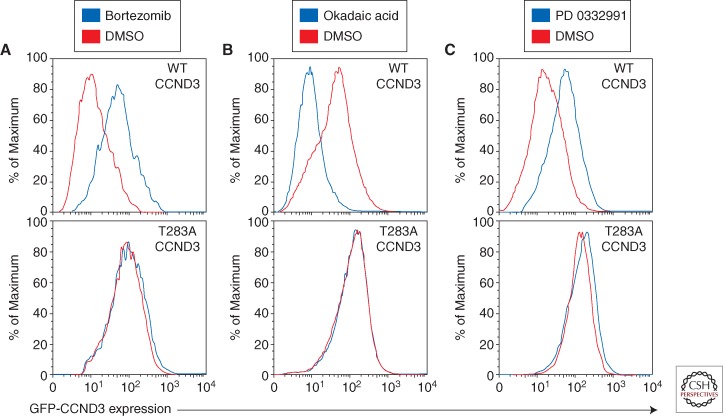Figure 2.
CCND3 mutations cause increased protein stability. FACS analysis of lymphoma cell lines transduced with mutant (T283A) or wild-type GFP-CCND3 fusion proteins (Schmitz et al. 2012). (A) Mutant CCND3 proteins are not degraded by the proteasome. GFP-CCND3 transduced HBL-1 (DLBCL) cells were cultured overnight in the presence of 20 nm the proteasomal inhibitor bortezomib (PS-341) and analyzed by FACS. (B) Mutant CCND3 proteins are not destabilized in response to phosphatase inhibition. Gumbus (BL) cells expressing GFP-CCND3 proteins were treated for 30 min with 750 nm pan-phosphatase inhibitor okadaic acid and analyzed by FACS. (C) The stability of mutant CCND3 proteins is not regulated in the cell cycle. Gumbus (BL) cells expressing GFP-CCND3 isoforms were treated overnight by addition of 1.5 mm the CDK-4/6 inhibitor PD 0332991. FACS analysis indicated stabilization of wild-type but not mutant CCND3 in the G1 phase of the cell cycle.

